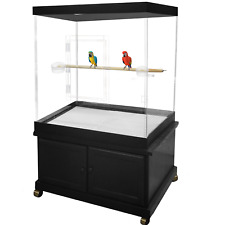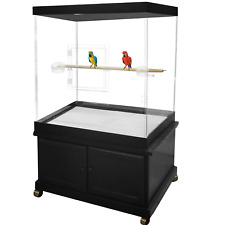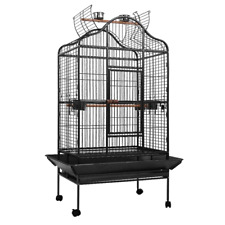How Aggressive Is Your Canine?

A recent study backs up Watson’s experiences with golden retrievers. Evaluating surveys of two groups of owners, researchers at the University of Pennsylvania’s Center for the Interaction of Animals and Society rated dog breeds on their levels of aggression. The study, accepted for publication in the journal Applied Animal Behaviour Science, indeed found that goldens rate among the least aggressive breeds. But the study also offers some somewhat unexpected conclusions when it comes to canine feistiness. You might be surprised to find where your dog’s breed ranks.
Small Dogs, Big Attitudes
Using a survey called the C-BARQ (Canine Behavioral Assessment and Research Questionnaire), researchers collected results from both online respondents and a sampling of members of 11 breed clubs recognized by the American Kennel Club. Remember the saying "It’s not the size of the dog in the fight but the size of the fight in the dog"? It turns out the surveys found two small dog breeds, Chihuahuas and dachshunds, rated high on aggression toward both humans and other animals.
"Initially, I was quite surprised by how aggressive these smaller breeds came out," says Dr. James Serpell, study co-author and director of the Pennsylvania center. "In smaller dogs, I think we tolerate higher levels of aggressive behavior," he says, adding, "the prospects of being seriously injured by a Chihuahua are small. Part of the problem with these little dogs is that they probably do live in terror a lot of the time because they are so small, and they are surrounded by giants – both humans and dogs."
How Other Breeds Rate
Akitas and pit bull terriers ranked high in aggressiveness toward other dogs, while Jack Russell terriers, Australian cattle dogs, American cocker spaniels and beagles were noted for aggression toward humans. Among the mellowest dogs were golden retrievers, Labrador retrievers, basset hounds, Siberian huskies, Bernese mountain dogs, greyhounds, whippets and Brittany spaniels.
"Interdog aggression is scarily high in some breeds," says Dr. Serpell. "Close to 30 percent of Akitas, for example, had shown serious aggression toward other dogs in the recent past," says Dr. Serpell. Indeed, says co-author Dr. Deborah Duffy, the amount of dog-versus-dog aggression reported by owners was alarming.
"What surprised us most was the percentage of owners reporting that their dog had bitten or tried to bite other dogs," says Dr. Duffy. "When we think of canine aggression from a public health perspective, aggression toward humans is typically what gets discussed. However, our study found that serious aggression among dogs is surprisingly common for some breeds, and this also presents a public health hazard because people can get bitten trying to separate dogs that are fighting."
Genetics likely plays a role in the aggressiveness of breeds such as the Akita, says Dr. Serpell. However, the researchers point out that these aggressive traits are often balanced by positive attributes, such as loyalty. Aggressive dogs, even the tiniest ones, tend to make terrific watchdogs, letting us know when strangers are around.
Nature or Nurture
Nagja Bamji says that her dachshund, Ronny, is far from aggressive. Ronny gives other dogs a wide berth, loves kids and recently backed off when a squirrel hissed at him, says Bamji, 46, a homemaker in Fremont, Calif. You also might find that your dog doesn’t fit the profile developed in this study.
"We do have breed differences; there is no question," says Dr. Gail Clark, a canine behavioral psychologist based in Fort Collins, Colo. "But there is a tremendous amount of factors in dog behavior."
She explains that environment and training, as well as breed, help determine how your dog behaves. For example, she says, the owners of little dogs tend to pick them up frequently in threatening situations. Perched high in their owners’ arms, the little dogs feel mighty brave. When the dogs return to the ground, they might feel defensive and threatened. How you perceive your dog’s breed, regardless of size, might therefore influence the way you train or handle your pal, thus affecting your canine’s long-term behavior, says Dr. Serpell.
Where you obtain your puppy can be another significant factor, says Dr. Serpell, who recommends finding a reputable breeder, visiting the breeder and even meeting your pup’s parents, if possible. Dogs produced in puppy mills often have behavioral problems, he says. Puppies tend to be removed from their mothers and littermates too soon, and they don’t have enough positive human contact in their early weeks. Their mothers often are kept in highly stressful environments during their pregnancies, which likely has a longstanding impact on the puppies, says Dr. Serpell.
Individuality Can Overcome Statistics
Dr. Serpell believes that the next step for researchers is to understand the factors that contribute to individual dogs behaving aggressively. When it comes to this study, it’s important to not paint every dog with the same brush, he thinks. "The No. 1 thing we’d like you to take from the study is it’s based on breed averages," says Dr. Serpell. "Branding a breed as dangerous or aggressive is inappropriate. Within any breed, you’re going to find many, many individuals that are really nice and well-tempered."













